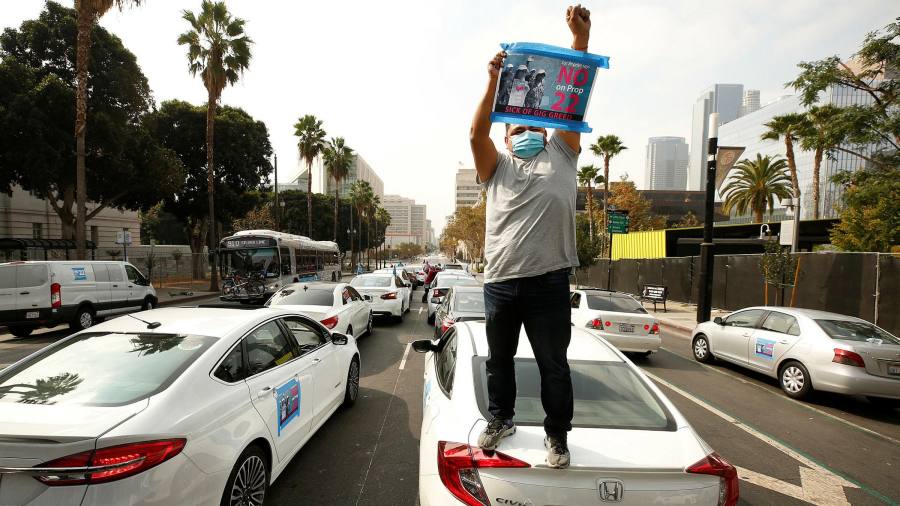[ad_1]
When your business model turns out to be against the law, do you change the business model, or change the law? Gig economy companies such as Uber, battered by repeated legal defeats, want to do the latter. If they succeed, then a handful of mostly lossmaking companies will change the world of work profoundly.
Uber lost a crucial case in the UK’s Supreme Court on Friday, when judges ruled it had wrongly classed its drivers as self-employed. While the drivers can work when they like, Uber sets their fee, selects their customers, monitors their performance and “deactivates†them if they aren’t up to scratch. Yaseen Aslam, one of the drivers who brought the case, says even the freedom to choose when to work is a mirage: drivers who don’t log in at busy times and drive long hours won’t cover the cost of car payments, insurance and maintenance. “It’s mentally exhausting, people don’t see that side,†he told me. “The worst thing is when they deactivate you, that is so inhuman.†Gig companies have lost similar legal battles in California, France, Spain, and the Netherlands.
It looks like the end of the legal road for the gig economy. The companies will either have to give workers more control (difficult to combine with a seamless, on-demand service) or employment rights such as the minimum wage and sick pay, which would probably lead to higher prices. Employers have to pay more tax too. Consumer demand for these apps may or may not hold up if the services stop being unfeasibly cheap. For Jeremias Adams-Prassl, an Oxford university law professor, the “single biggest message†from the UK ruling is that “you don’t get to choose whether the law applies to you or notâ€.
But there is another possible outcome. Rather than adapt their business models to fit the law, gig companies can try to amend the law to fit their business model. They have already succeeded in California, where they spent $200m to convince voters to support Proposition 22, a measure that allows them to continue to treat workers as self-employed with some upgraded benefits and protections. The gig companies’ lobbyists are now pushing “Prop 22†as a national model in the US. They are also trying to cut deals with unions that would give some representation to gig workers while holding the line on their status as independent contractors.
The companies are trying a similar approach in Europe. Uber published a “white paper†this month offering to “work hand-in-hand†with EU policymakers to create “new industry standards for platform work, while ensuring it is recognised and valued at a legislative levelâ€. Uber might also push the UK government to bring new legislation to redefine the status of workers.
It’s undoubtedly true that labour market rights need a 21st century update. The genuinely self-employed would benefit from portable benefit funds to which different clients could contribute, for example. The inflexibility and unpredictability of work in some low-paid sectors needs urgent regulatory attention.
But it is important not to conflate these ideas with the solution offered by gig companies. They want to codify the notion that a company can exert much of the power of an employer with few of the responsibilities. A new law would tempt other companies to downgrade or “Uberise†some staff to save money. After Prop 22 passed in California, Albertsons, the supermarket chain, informed delivery driver employees they would be replaced by contractors. “Workers in all sorts of industries — from agriculture to zookeeping — could benefit from the structure that Prop 22 provides,†wrote Shawn Carolan, a partner at early Uber investor Menlo Ventures, in a recent article.
What would a world with vastly more Uberised workers look like? On the plus side, it would make some services cheaper (as Uber has done with taxis). That would allow the middle-classes to enjoy levels of convenience once only available to the wealthy. But is that gain worth hollowing out the tax base and creating a subclass of workers? Last year, Uber’s chief executive Dara Khosrowshahi shared his vision of the future. It wasn’t about technology or liberated workers. It was mundane and — to my ears — somewhat bleak. “Eventually, you know, I can see a world where if you want to take cash out from the bank, someone will come and deliver cash to you, right? It’ll be anything that you want delivered to your home.â€
[ad_2]
Source link





